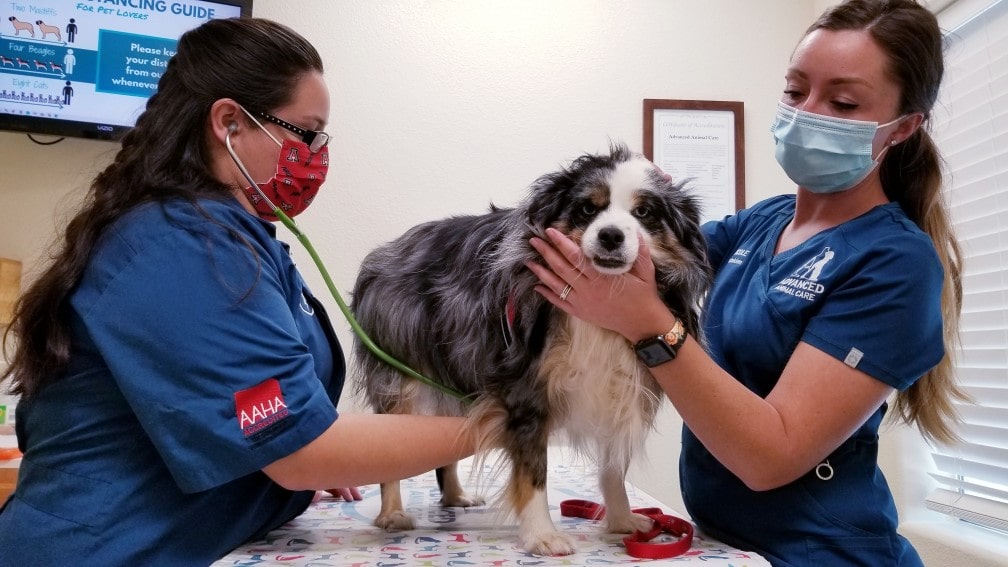Are you worried about allergic reactions in your dog? Are you wondering how to heal your dog from allergens? In that case, you must always start the treatment process with antihistamines. It is the most basic way to get relief from such a problem.
If your dog suffers from allergic symptoms such as hives, itching, and sneezing, the vet would suggest Benadryl.
To treat allergies, vets may prescribe other antihistamines such as Zyrtec and Claritin. For example, you could use apple cider vinegar for ear allergies and yeast infections.
If they are suffering from flea allergies, you could use coconut oil as it contains Lauric acid, which could prove helpful in providing relief.
If your dog has a swollen reddish coat and itchy skin, you could give them an oatmeal bath. Quercetin is also an effective solution because of its antihistamine and antioxidant properties.
Do dogs have allergies?
Allergies are a common issue among all dog breeds. They tend to suffer from a wide range of allergies, such as the following:
- environmental allergies
- food allergies
- seasonal allergies
- flea and insect bites
- sneezing
- coughing
- Alabama disease
- hives
- itching
- inflammation
- swelling
In some cases, they could be susceptible to inhaled allergens. If your dog shows any signs of allergy, you must take them to the vet immediately.
Treating dog allergies
As mentioned, dogs are vulnerable to various allergies, and different allergies have unique solutions. Benadryl is the first option for curing allergies due to bites from insects, fleas, and ticks.
If they are allergic to inhaled allergens such as pollens, they should use antihistamines to alleviate symptoms of cold and itching. It includes the likes of Benadryl, Zyrtec, Claritin, and Quercetin.
You should use medicated dog shampoos if they have too many skin rashes, greasiness, and dandruff. If you see red, itchy, and moist spots on their skin, you should use oatmeal-based shampoos to soothe the affected areas.
How to help a dog with allergies
If your dog is suffering from any allergy, you could try a few things to improve the reactions. First, the doctor may suggest antihistamines such as Benadryl or steroids if they have to be treated for the same.
They may prescribe allergy vaccine shots or immunotherapy to deal with the issue. It could prove to be better in these cases.
Finally, canine nutritionists may suggest specially-made food to eliminate the reactions caused by these allergies.
Medicines for dog allergies
Allergy is a common condition among dogs. Almost 20% of dogs around the world suffer from the same. Unfortunately, it has become a growing phenomenon these days. Certain OTC (over-the-counter) antihistamines such as Benadryl, Zyrtec, Claritin, and Quercetin are considered the safest options in these cases.
They can work as antecedent medicines and reduce the symptoms of allergy that your baby may be suffering from right now. However, before you give any medication to your dog, consult your vet.
Antihistamines:
These can help relieve symptoms such as itching, sneezing, and runny nose. Common antihistamines include loratadine, cetirizine, and fexofenadine.
Decongestants:
These can help relieve nasal congestion and other symptoms. Common decongestants include pseudoephedrine and phenylephrine.
Nasal corticosteroids:
These can help reduce inflammation in the nasal passages and relieve symptoms. Examples include fluticasone, mometasone, and budesonide.
Immunotherapy:
This involves gradually exposing the body to small amounts of an allergen to desensitize it over time. Immunotherapy can be administered as shots or as sublingual tablets.
Eye drops:
If you have allergic reactions, your doctor may prescribe eye drops containing antihistamines or mast cell stabilizers.
Building up immunity to dog allergies
You can always add natural supplement tablets that contain nutrients like Omega 3 fatty acids, cod liver oil, and probiotics to your dog’s diet to improve its immune system. Coconut oil is a good option because of its antibacterial and antiviral properties.
It is highly effective for dogs with itchy skin – at the same time, it can improve their immune system. You can also combine it with fish oil and include it in your dog’s diet.
Costs of dog allergy tests
The amount you must pay for an allergy test depends on various factors, such as the vets doing the test and the allergens requiring testing. The location of the clinic is a crucial factor too.
On average, it could cost you 150 dollars. Nowadays, you can get an allergy test done at your home. No matter what it is, the most significant factor, in this case, is the number of allergens to be tested.
Getting rid of dog allergies
Dogs are like humans in the sense that they can develop allergies too. An important step you can take is preventive healthcare with all the phenomena that may trigger allergic reactions in your dog. It needs to be taken at the earliest.
Steer clear of grassy lawns since the dogs have a high chance of being infected with allergens that could harm your dog. They may get attached to their claws and paws. Hence, that can be harmful to your dog.
Seasonal allergies in dogs
Regular environmental factors such as pollen, various kinds of grass, dust mites, and leaf mold can cause an allergic reaction in your dog, and at times, they tend to be seasonal. If you see your dog itching, it could be because of an inhaled allergen.
If a dog suffers from seasonal allergies, the symptoms would be evident before they age three. As part of treatment, you may have to administer antihistamines or glucocorticoids. You may also have to opt for hypo-sensitization therapy.
The effect of Benadryl in these cases
In the case of both dogs and cats, Benadryl is a primary medicine to deal with allergies. It helps treat allergic symptoms such as hives, itching, and sneezing.
However, this medicine can also cause them to be hyperactive in some cases, and in others, they may feel dizzy.
You should also remember that you should never overdose your dog on Benadryl, as it can kill them. It is especially so when you do not treat such an overdose untreated.
Conclusion
Dog allergies can cause many uncomfortable symptoms, but treatment options are available to manage them. You can live comfortably with your furry friends by working with your doctor and taking steps to reduce your exposure to dog allergens.

 DogExpress
DogExpress






















 in Chandigarh, India.
in Chandigarh, India. 
